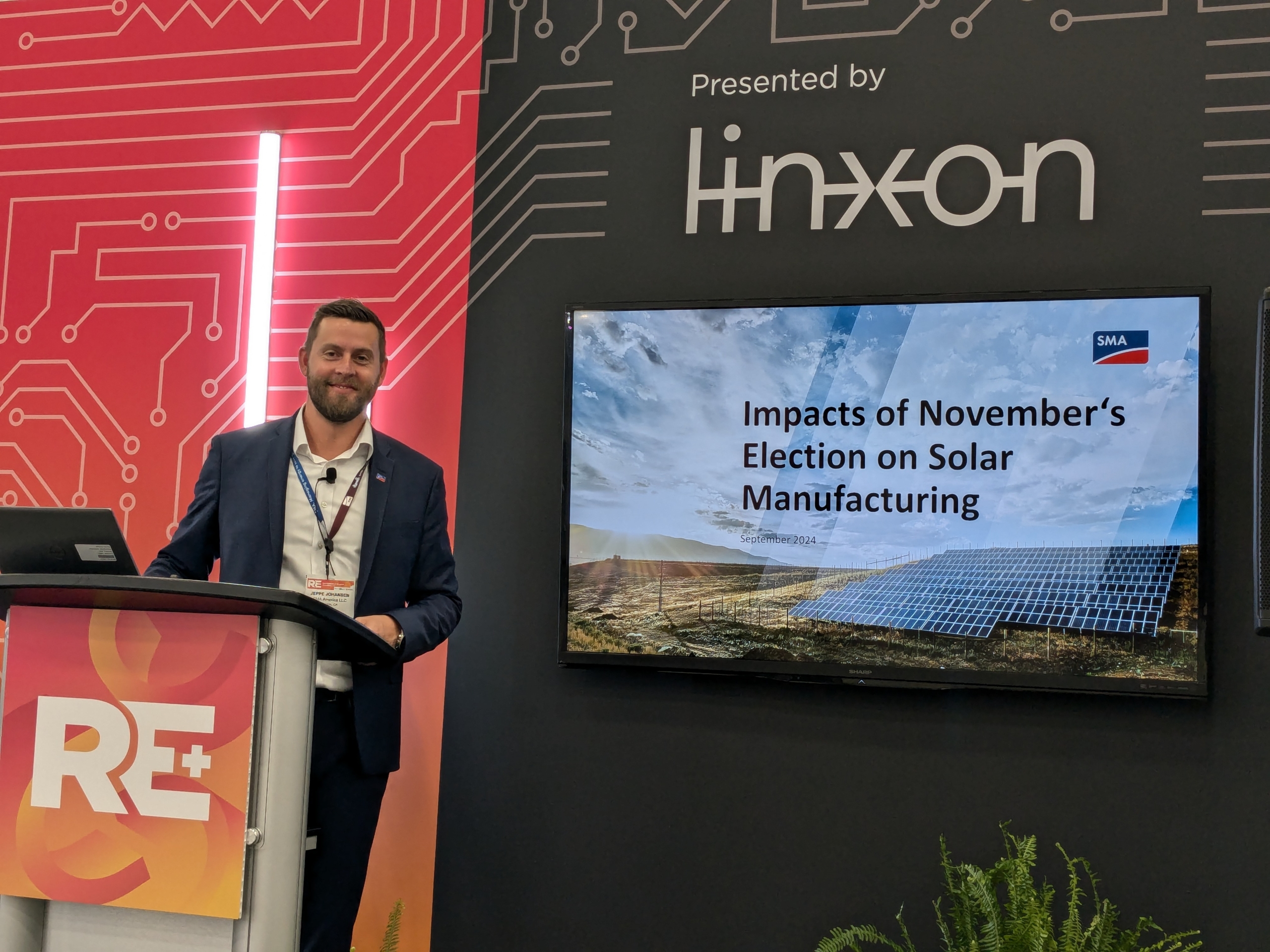Jeppe’s RE+ 2024 Presentation: The Future of U.S. Solar Manufacturing

At this year’s RE+ conference, Jeppe Johansen, managing director of SMA America, delivered a standout presentation that captivated a full house, drawing industry leaders, policymakers and solar enthusiasts eager to explore the future of U.S. solar manufacturing. His engaging talk, “The Impacts of November’s Election on Solar Manufacturing,” tackled one of the most pressing topics in renewable energy today: the political landscape’s influence on solar growth and investment.
Jeppe kicked off with a balanced analysis of two possible election outcomes—a “Red Wave” and a “Blue Wave”—each of which could significantly shape the industry. He carefully outlined how a shift toward Republican policies might increase fossil fuel support, potentially limiting federal backing for renewables. However, he also highlighted a key nuance: Republicans may still advocate for reshoring and domestic manufacturing, which could protect some solar investments.
On the flip side, a Democratic victory would likely bolster solar production through continued funding from the Inflation Reduction Act (IRA). Jeppe emphasized how federal tax credits, grants, and investments could fuel a renaissance in U.S. solar manufacturing, strengthening supply chains, creating jobs, and furthering the transition to clean energy. The statistics he shared were eye-opening—since 2021, over $1.6 trillion has been invested in climate and energy initiatives, including solar, thanks to supportive legislation like the IRA, the Infrastructure Investments and Jobs Act (IIJA), and the CHIPS Act.
Audience members were eager to dive deeper into issues such as potential risks to solar programs under a new administration and how state-level policies might mitigate federal changes. The discussions reflected the high level of interest in how both domestic and international policy shifts could impact the solar sector. Jeppe’s nuanced understanding of these complexities made for a compelling back-and-forth with attendees, further cementing his reputation as a thought leader in renewable energy.
In addition to policy and manufacturing, Jeppe emphasized the importance of grid resiliency and the social and environmental impacts of expanding solar. As more large-scale solar projects come online, ensuring grid reliability is critical. Jeppe pointed out that while Republicans may prioritize traditional energy sources like natural gas for grid stability, Democrats are pushing for clean energy solutions and modernized infrastructure, including energy storage and smart grid technologies.
On the social front, Jeppe highlighted how the election could influence federal support for solar projects that target underserved communities, enhance climate resilience and create equitable access to clean energy. These initiatives are not only environmentally beneficial but also vital for driving economic opportunities in disadvantaged areas, showing the broader societal impact of a thriving solar industry.
Jeppe’s RE+ presentation not only offered a clear view of the road ahead but also inspired action. His message was clear: regardless of political outcomes, the solar industry needs to remain adaptable, informed, and proactive. The enthusiastic crowd left with much to consider and a renewed commitment to shaping the future of American solar manufacturing.




Feel free to contribute!